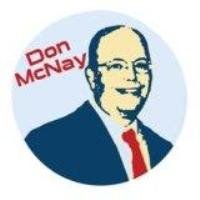Economic Incentives for States to Attract Businesses
 I did my Master's thesis at Vanderbilt on the role of the Kentucky Governor in Economic Development. I've followed the issue avidly since then.
I did my Master's thesis at Vanderbilt on the role of the Kentucky Governor in Economic Development. I've followed the issue avidly since then.Kentucky has had a lot of media attention about the use of tax incentives. The New York Times did a recent story about the UPS operation in Kentucky and the Lexington Herald Leader did an excellent series on the topic of incentives last year.
Incentives have become an issue in this year's Governor's race as Peabody Coal, may or may not bring some kind of plant to Kentucky. It may or may not have hundreds or thousands of jobs.
There are a lot of factors in attracting business that are beyond a Governor's control. The national and world economies are the major driving forces and no state Governor can start or stop a recession. Also there are practical factors. Yacht builders are not going to locate in Nebraska, no matter how hard the Governor of Nebraska tries and there are several factors that play into where a company locates.
States often give away too much to lure a new prospect and neglect businesses already in their states.
It's a little like courting. During the beginning process, you need to show interest, like buying flowers, but buying a potential date a new car and house is a dumb use of resources. You save the car and house for when you are married.
 A big question for states to ask is does one business bring in other new businesses with it? Kentucky hit the jackpot attracting Toyota in 1985. Toyota brought in a ton of suppliers and other jobs. It also brought in lifestyle changes and changed the dynamic of Central Kentucky.
A big question for states to ask is does one business bring in other new businesses with it? Kentucky hit the jackpot attracting Toyota in 1985. Toyota brought in a ton of suppliers and other jobs. It also brought in lifestyle changes and changed the dynamic of Central Kentucky.Kentucky was either smart or lucky to have a bet on a company that would become the largest car company in the world.
They could have very easily spent the same incentive money on a Saturn plant like Tennessee or the now Volkswagen plant that Pennsylvania had. There is little chance that Toyota will pull out of Georgetown like Chrysler did to Kenosha, Wisconsin.
UPS was a smart bet for Louisville. It brought highly paid, mostly manual labor, jobs to an urban area that has a job pool to fill them. People drive from other parts of Kentucky (and from Indiana) to work at UPS but you need a major airport if you are going to attract a UPS (or a Delta) to an area.
 A side benefit of UPS is spin-off jobs. Many years ago, I read an article in the Wall Street Journal about how a number of supplier companies located as close as possible to the Memphis airport so they had easy access to Federal Express. I started using one of them, PC Zone, for computer supplies as you could order as late as 11 p.m. and have it in your office by ten the next morning. If I ordered from another supplier, it would take a second day and I often needed a part to keep my business going.
A side benefit of UPS is spin-off jobs. Many years ago, I read an article in the Wall Street Journal about how a number of supplier companies located as close as possible to the Memphis airport so they had easy access to Federal Express. I started using one of them, PC Zone, for computer supplies as you could order as late as 11 p.m. and have it in your office by ten the next morning. If I ordered from another supplier, it would take a second day and I often needed a part to keep my business going.I've seen a lot of companies locate in Kentucky with a similar philosophy to PC Zone. One of the reasons Amazon has big warehouses in Kentucky is proximity to UPS. It's not unusual for me to order something from Amazon via standard shipping and have it show up the next day.
All of this also plays into the series that CNBC did last week as to which states are most business friendly. Kentucky tied with Montana for 34. Virginia was number one and hard to argue with; a central location, great public universities, a diverse economy and the Internet capital of the world. Kentucky has the central location and none of the others. It scored high on transportation and little else.
I don't know if a Kentucky can ever catch a Virginia. However, they need to play to their strengths, like transportation, and focus on some simple solutions for existing businesses. The push for statewide broadband access, which is supposed to be here but is not, would allow Kentucky's current businesses to improve communications and their online capabilities.
Putting more money into communications would be a smarter bet than throwing money at big companies. I hope the leaders of Kentucky figure that out.


No comments:
Post a Comment